Tomer Golomb
Lightweight Collaborative Anomaly Detection for the IoT using Blockchain
Jun 18, 2020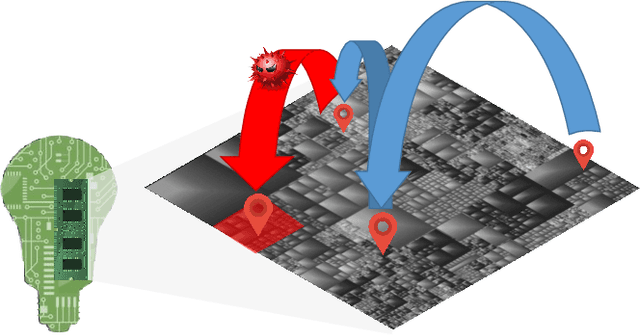
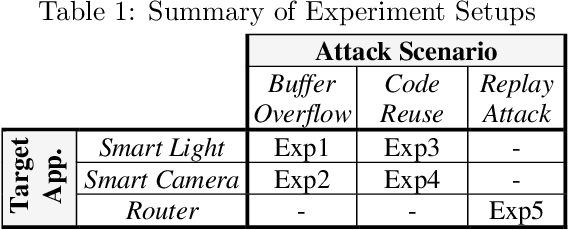
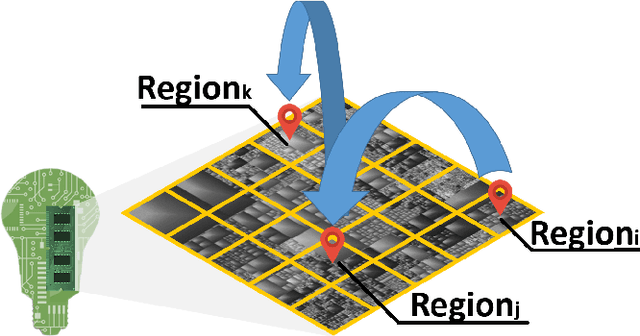
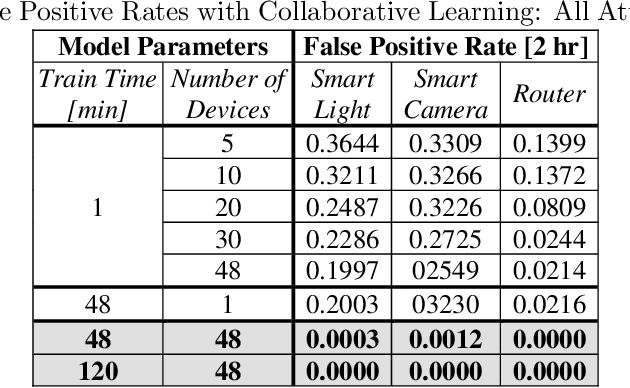
Abstract:Due to their rapid growth and deployment, the Internet of things (IoT) have become a central aspect of our daily lives. Unfortunately, IoT devices tend to have many vulnerabilities which can be exploited by an attacker. Unsupervised techniques, such as anomaly detection, can be used to secure these devices in a plug-and-protect manner. However, anomaly detection models must be trained for a long time in order to capture all benign behaviors. Furthermore, the anomaly detection model is vulnerable to adversarial attacks since, during the training phase, all observations are assumed to be benign. In this paper, we propose (1) a novel approach for anomaly detection and (2) a lightweight framework that utilizes the blockchain to ensemble an anomaly detection model in a distributed environment. Blockchain framework incrementally updates a trusted anomaly detection model via self-attestation and consensus among the IoT devices. We evaluate our method on a distributed IoT simulation platform, which consists of 48 Raspberry Pis. The simulation demonstrates how the approach can enhance the security of each device and the security of the network as a whole.
CIoTA: Collaborative IoT Anomaly Detection via Blockchain
Apr 09, 2018

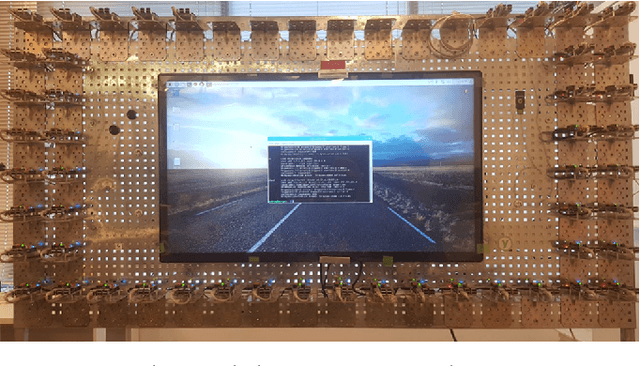
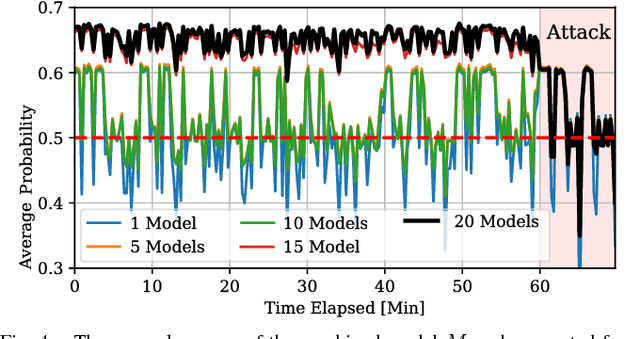
Abstract:Due to their rapid growth and deployment, Internet of things (IoT) devices have become a central aspect of our daily lives. However, they tend to have many vulnerabilities which can be exploited by an attacker. Unsupervised techniques, such as anomaly detection, can help us secure the IoT devices. However, an anomaly detection model must be trained for a long time in order to capture all benign behaviors. This approach is vulnerable to adversarial attacks since all observations are assumed to be benign while training the anomaly detection model. In this paper, we propose CIoTA, a lightweight framework that utilizes the blockchain concept to perform distributed and collaborative anomaly detection for devices with limited resources. CIoTA uses blockchain to incrementally update a trusted anomaly detection model via self-attestation and consensus among IoT devices. We evaluate CIoTA on our own distributed IoT simulation platform, which consists of 48 Raspberry Pis, to demonstrate CIoTA's ability to enhance the security of each device and the security of the network as a whole.
 Add to Chrome
Add to Chrome Add to Firefox
Add to Firefox Add to Edge
Add to Edge